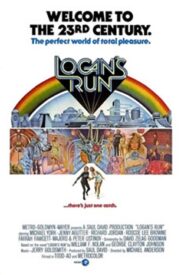Opinion: Career Leaders
Over 50s make up a large proportion of UK society and household consumer spending, but less than 7% of advertising workforce. So why do we not see more of them in our teams and what are we missing out on?
When I was a kid in the late 70s and early 80s I loved science fiction. Still do.
Amongst programmes like Blake’s 7, Space 1999 and UFO, the one that captured my imagination was Logan’s Run. I expect literally nobody reading this to get this reference, for reasons that will become clear, but bear with me.
The premise of the film, and subsequent TV series was that the population of this future society (in 2274) and consumption of resources was maintained in equilibrium…by killing everyone over the age of 30.
The IPA published its latest census the other week. It shows major progress on many aspects of diversity and inclusivity.

Along with a tangible improvement on numbers, it also feels like we are starting to have more education about, and empathy with, what it feels like to be part of an underrepresented community in our industry, thanks in part to great initiatives such as Media For All (MEFA).
Work to do for sure, but real progress.
In terms of age…not so much. The percentage of the over 50s in our industry languishes at 6.5%…no change.
Sound familiar? Logan’s Run.
If you’re over 50 in this business… well, you aren’t. You are dead.
It has always seemed an absolute no brainer to me that if you are in the business of helping other businesses communicate with society then you are going to do a better job if your business looks like that society.
In the UK, over 50s make up just under 40% of the population and account for roughly 54% of all household consumer spending.
So why the blind spot in this industry on age?
Perhaps rightly so — in the hierarchy of under-representation, age ranks fairly low. Largely due to male white privilege, the over 50s are much more likely to enjoy some degree of financial security so there is certainly no comparison in terms of ‘unfairness’.
But the indomitable truth is whatever community you identify with, you are all going to get older. So why doesn’t your average 34.4 year old advertising professional seem to care?
Perhaps it’s this; younger people just don’t like to confront the fact that one day they will be old.
In a Stanford University study in 2011, people were put in a brain scanner and asked to think about four things: themselves today, a stranger today, that stranger 10 years in the future and themselves 10 years in the future. Their brains lit up when they thought about their present selves, less so when they thought about the stranger and they didn’t care much about their future selves either.
Psychologically people just don’t identify with who they will be in the distant future. It’s the reason why we chronically underprovide financially for our later years.
A World Economic Forum study estimated that when millennials in the UK retire, in around 2050, the savings gap, in terms of maintaining current lifestyles, amongst this population will be about £23tn!
So you might argue that, with such a relatively young industry, it’s a bit of a self-fulfilling prophecy that age diversity will continue to remain un-addressed.
How do we attract mature talent into the industry?
I’ve seen a number of ‘age friendly’ initiatives seemingly with the purpose of attracting older talent back into the sector.
Whilst undoubtedly noble in intent, surely this is rather shutting the stable door…Surely the answer is not firing, or trying harder to keep them in the first place!
Rather developing and formalising some new career paths and supporting people to transition into these at times when they probably want more flexibility in their lives anyway.
Space prevents me from expanding beyond the macro benefits of a business that reflects the age profile of wider society.
However, one thing that we have always been bad at is formalised and structured knowledge transfer.
Much of the learning in this business, be it operational or emotional, still happens over the shoulder of someone that’s more experienced than you. In a world of flexible working this challenge is even more pointed.
At the moment all this vast wealth of experience simply evaporates.
Glen Wilson is the founder of Outsider Communications, an independent growth consultancy, and was previously group MD OOH for Dentsu International.
Career Leaders: our weekly bulletin with thought leadership, news and analysis dedicated about media careers, training, development and wellbeing.
Sign up for free to ensure you stay up to date every Tuesday.






